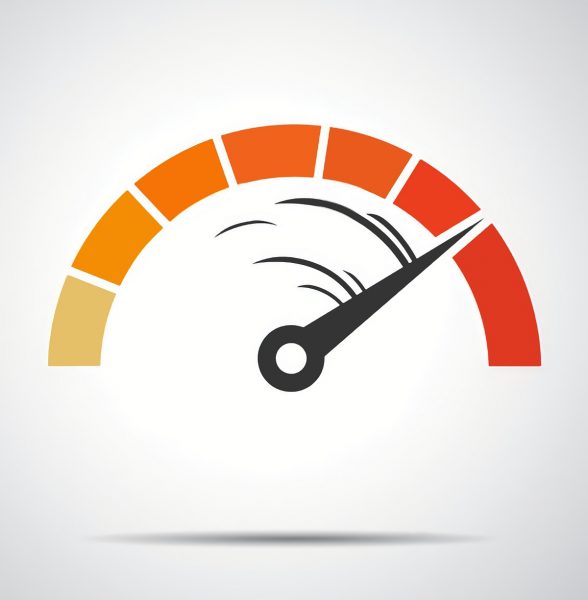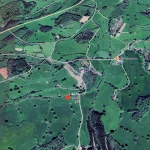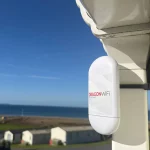Top Fastest UK Mobile and Home Broadband ISPs for H1 2024

Today we’re taking our usual biannual look back to see how the average UK broadband download and upload speeds have changed across the fastest nationally available fixed line ISPs, mobile operators and Starlink (satellite) since the end of 2023. Overall, broadband speeds have continued to improve, albeit not without some surprises.
As usual the results in this report stem from web-based speed testing by consumers and are thus inevitably impacted by a number of factors, such as the rising coverage of faster networks (e.g. full fibre and 5G) and the associated level of take-up by customers. Due to this, it helps to understand any key changes in network deployments and there have been a few small changes since the last report (Ofcom’s data).
| Fixed Connection | Jan 2024 Coverage (Sept 2023) |
| % Under 10Mbps (USO) | c.1% (c. 1%) |
| Superfast (30Mbps+) | 97% (97%) |
| Gigabit-capable | 80% (78%) |
| Full Fibre (FTTP) | 62% (57%) |
The first thing to note is that the roll-out of Fibre-to-the-Premises (FTTP) technology has taken a bit of a hit over the past year, with many networks reporting job losses and slowing their builds due to wider market pressures (rising costs, high interest rates, competition etc.). Some have weathered this better than others, although there are still many operators with active builds (Summary of Full Fibre Build Progress) and a few have managed to accelerate their deployments (e.g. Openreach, Netomnia, nexfibre / VMO2).
Advertisement
Most of the gigabit-capable coverage continues to be fuelled by commercial roll-outs in urban areas (already reaching 80% of the UK), while the Government’s £5bn Project Gigabit programme (focuses on the final c.20% of unviable / rural premises) aims to help this reach over 85% by 2025, followed by “at least” 99% by 2030. Ofcom predicts the UK will achieve around 90-94% coverage by May 2026 (here).
In terms of mobile networks, both 4G and 5G coverage hasn’t changed all that much. Commercial 5G deployments showed the biggest rise, while the industry-led £1bn Shared Rural Network (SRN) project has made a little progress on boosting geographic 4G coverage and aims to cover 95% of the UK – from at least one operator – by the end of 2025.
| Mobile Coverage |
Jan 2024 Coverage (Sept 2023) |
| 4G Geographic | 81-88% (80-87%) |
| 5G Premises (Outdoor) from at least 1 operator | unchanged (85-93%) |
Fastest Major Fixed Broadband ISPs (H1 2024 vs H2 2023)
The data in this report has been gathered from Thinkbroadband’s independent speedtest database (inc. ISPreview’s Broadband Speedtest). The table only includes the largest and most established independent ISPs with strong national availability, but there is a separate table for smaller alternative networks on page 2 – these are difficult to include because they aren’t yet available to the majority of premises and don’t produce much test data due to fewer users.
Naturally, there are caveats to consider with speedtest based studies like this, not least because the results tend to be more reflective of take-up than network availability. For example, some ISPs may have a much larger proportion of customers on slower copper-based (ADSL or FTTC) lines, which can weigh against anybody on faster FTTP packages with the same provider (i.e. pulling average speeds down). The opposite can also be true.
Advertisement
Average Download Speeds – Top 8
| No. | Operator | H1 – 2024 (Top 10%) | H2 – 2023 (Top 10%) | Change % |
| 1. | Virgin Media | 280Mbps (675.4Mbps) | 264.5Mbps (626.6Mbps) | 5.86% |
| 2. | Zen Internet | 199.1Mbps (607.1Mbps) | 165.4Mbps (506.3Mbps) | 20.37% |
| 3. | Vodafone | 179.7Mbps (545.2Mbps) | 134.8Mbps (430.3Mbps) | 33.31% |
| 4. | BT | 116.8Mbps (313Mbps) | 93.7Mbps (231.5Mbps) | 24.65% |
| 5. | Sky Broadband | 74.3Mbps (142.6Mbps) | 61Mbps (127.5Mbps) | 21.8% |
| 6. | Plusnet | 71.5Mbps (147.7Mbps) | 58.5Mbps (103.6Mbps) | 22.22% |
| 7. | EE | 68.3Mbps (103.8Mbps) | 72.1Mbps (108.5Mbps) | -5.27% |
| 8. | TalkTalk | 64Mbps (114.2Mbps) | 64.8Mbps (107.8Mbps) | -1.23% |
Average Upload Speeds – Top 8
| No. | Operator | H1 – 2024 | H2 – 2023 | Change % |
| 1. | Zen Internet | 106.2Mbps | 58.3Mbps | 82.16% |
| 2. | Vodafone | 73.1Mbps | 55.5Mbps | 31.71% |
| 3. | Virgin Media | 39.2Mbps | 34.4Mbps | 13.95% |
| 4. | BT | 24Mbps | 20.7Mbps | 15.94% |
| 5. | Sky Broadband | 16.7Mbps | 14.9Mbps | 12.08% |
| 6. | EE | 16.4Mbps | 19.5Mbps | -15.9% |
| 7. | TalkTalk | 15.7Mbps | 17.6Mbps | -10.8% |
| 8. | Plusnet | 15.4Mbps | 13.1Mbps | 17.56% |
Overall, the average download speed of the top national providers was 131.7Mbps (up from 114.35Mbps) and the average upload speed hit 38.3Mbps (up from 29.25Mbps). Vodafone delivered the biggest (33%) uplift in download performance over the first half of the year, while Zen Internet saw a massive (82%) increase in upload speed. But otherwise most of the changes were in positive territory and about what we’d normally expect.
The exceptions to the rule this time around were EE and TalkTalk, both of quick recorded an unexpected fall in download performance, which seemed to get even worse for uploads. At the time of writing we couldn’t point to any particular reason for why this occurred and it will be interesting to see if they recover for the end of this year.
Advertisement
Finally, Virgin Media launched their new 2Gbps plan earlier this year and a symmetric speed add-on, but we weren’t expecting much of an impact from those changes as they currently only impact people covered by the new nexfibre network (1 million premises).
Satellites
We’ve also been keeping track of the results for SpaceX’s satellite based Starlink broadband service. Sadly, not enough data exists to include other satellite platforms or providers, but that may change in the future. Otherwise, Starlink’s download performance appears to have declined during the first six months of 2024, while their upload speeds have increased.
| H1 – 2024 (Top 10%) | H2 – 2023 (Top 10%) | |
| Download | 90.7Mbps (156.9Mbps) | 105.2Mbps (171.3Mbps) |
| Upload | 11.2Mbps (16.4Mbps) | 8.8Mbps (13.3Mbps) |
Now flick over to page 2 to see how the fastest full fibre alternative network (altnet) ISPs and mobile operators performed.
Mark is a professional technology writer, IT consultant and computer engineer from Dorset (England), he also founded ISPreview in 1999 and enjoys analysing the latest telecoms and broadband developments. Find me on X (Twitter), Mastodon, Facebook, BlueSky, Threads.net and Linkedin.
« Clearing Up Confusion Over Vodafone UK’s New Roaming Charge






















































Not surprised to see Zen at the top. Their customer base tends towards the techie type who is going to want the fastest speeds available. No wonder Richard was so keen on the Openreach Equinox 2 program, he knows he will have a lot easier time than the likes of Sky and Talk Talk getting customers to switch to FTTP.
Me neither, I found that Zen speeds were pretty much the practical maximum what ever time of the day. Possibly helped by the fact that most of my neighbors were elderly Luddites.
EE are going backwards! Come on BT. If you expect people to move to EE you are going to have to do better than this.
If a customer of say TalkTalk as mentioned was on their fastest speed and moved away to an altnet then the average speed based on remaining FTTC and ADSL lines locked in contract, would start to dominate. It seems that the survey possibly relates more to the customer base costs and expectations than to the ability of an ISP to deliver a speed. (Given they are often OR based)
Trooli should be at the top ad they have a 2gb symmetrical service with 2gb down and 2gb up and that’s full fibre. Also no price increase for 2 Yr contract.
Youfibre do that for the same price but you get fantasic kit with youfibre. The Trooli kit looked terrible and its not included in the 49.99
Trooli do a 2gb down and 2gb up service and it’s brilliant it’s full fibre but best of all it’s symmetrical. Theres not many at moment doing symmetrical service.
Theres more and more every day but there is only one that do 8gig up and down. Youfibre
you forgot youfibre ,,, 950meg down and 950 meg up with dedicated ip for £31 a month
YouFibre is covered on page 2 in the altnets table.
It’s a real pity that you don’t include the high-quality ISPs, such as the likes of AAISP and IDNet any more?
Anyone know why Wildanet who have £100m of public funds to provide fibre in the south west and then sell access to other ISPs for fair value do not seem to have sold any yet? They’ve been laying plenty of fibre but the only customer offering is their own – they’re known for poor customer service and personally I wouldn’t trust them to stay in business for the length of a 24 month contract. Is this common with any other altnets handed funds as part of Project Gigabyte?